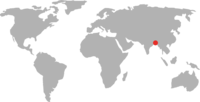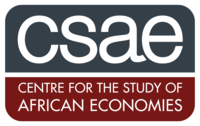EXPERIMENTAL EVIDENCE OF THE ROLE OF COACHING WITHIN BUNDLED ULTRA-POOR GRADUATION PROGRAMMES
OUR AIMS
Finding cost-effective ways of reducing poverty among the ultra-poor continues to be a major policy challenge. One approach that has shown great promise across different contexts is BRAC’s graduation model: a package of sequenced interventions intended to help the ultra-poor develop stable and sustainable livelihoods. The model typically consists of asset transfer, food subsidy, entrepreneurship training, health and social awareness, coupled with “coaching” for 18-24 months with the intention of achieving behavioural change. Bandiera et al (2017) conducted a large-scale randomized control trial (RCT) of this model, implemented by BRAC in Bangladesh, to find that the asset transfer leads to 36% increase in annual income and larger positive effects on asset accumulation. BRAC’s graduation model has also been shown to be effective in lifting poor households out of extreme poverty in several other contexts.
The success of BRAC’s graduation model is unlikely to be driven entirely by the physical transfer of resources or even the skills transmitted, but also by the way in which the intervention changes how people perceive themselves and their ability to affect their lives (their identity and mental models). Moreover, the way in which communities perceive those targeted and their social networks are likely to play an important role, especially during hardship, such as the COVID-19 pandemic. Coaching is hypothesised to be one of the critical pieces in promoting these social and psychological factors, yet evidence on its effectiveness remains limited. Moreover, coaching remains one of the most expensive components of the BRAC graduation model to operationalise.
This project aims to explore the importance of social and psychological factors in the success of BRAC’s graduation programmes, and whether the model can be improved and made more cost-effective by integrating these factors. The research team plan to build on an ongoing experimental study to examine if the intensity of coaching matters for the success of the programme and to research the relative impact of village assistance committees.
Three key questions:
- Did the 2016 intervention have lasting effects on recipient welfare especially in the context of the COVID-19 pandemic?
- Does changing the mode of delivery or reducing the amount of coaching affect programme impacts?
- What are the potential mechanisms through which coaching affects outcomes?
ABOUT THE PROJECT
This project studies the role of coaching within BRAC's 2016 ultra-poor graduation programme in a randomised controlled trial with approximately 8000 households in rural Bangladesh.
Researchers used a multi-arm field experiment introducing variation in coaching intensity and delivery across three treatment arms:
- Treatment Arm One
Received the full UPGP programme, including weekly coaching. - Treatment Arm Two
Received the same UPGP but with fortnightly coaching. - Treatment Arm Three
Received fortnightly coaching alongside fortnightly group-based coaching.
RESULTS
The findings indicate that the UPGP has significant and sustained impacts on asset holdings, consumption, earnings, land ownership, and engagement in higher-productivity economic activities. These impacts endured even after the COVID-19 pandemic. However, when comparing the effects of different coaching variations, there is little evidence that coaching intensity or mode of delivery affected welfare outcomes.
The research team find that the marginal impact of coaching is small, suggesting that reducing the quantity of coaching could be a cost-effective approach to scaling up graduation programs.
In addition, researchers provide suggestive evidence against a number of mechanisms commonly proposed as channels through which coaching might work -- including that coaching functions as a transfer of human capital through skills development. Rather, they argue that, if coaching works, the most likely explanation for its effectiveness is that coaching increases programme compliance and provides a link between recipients and the implementing organisation.
PROJECT DETAILS
Timeline
August 2021 – December 2023
Location
Bangladesh

Associations









